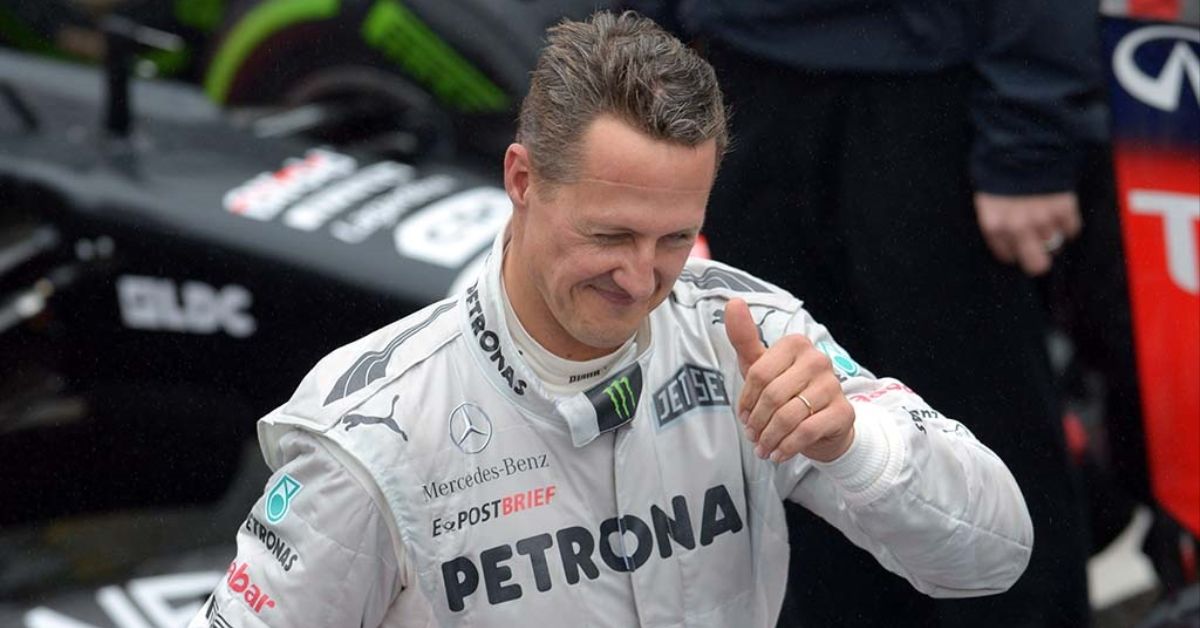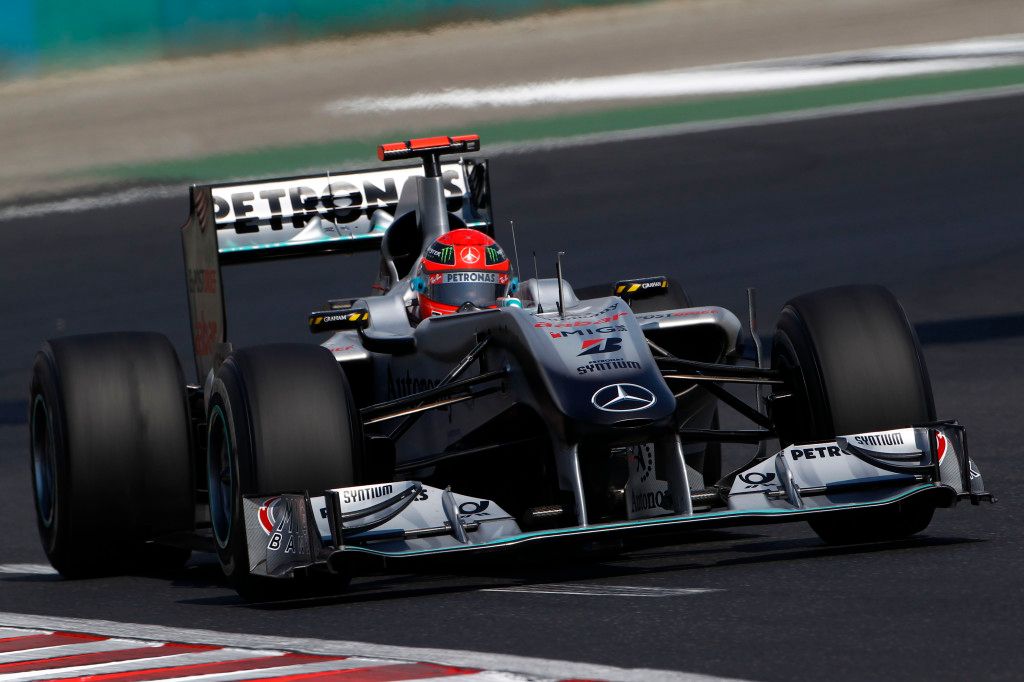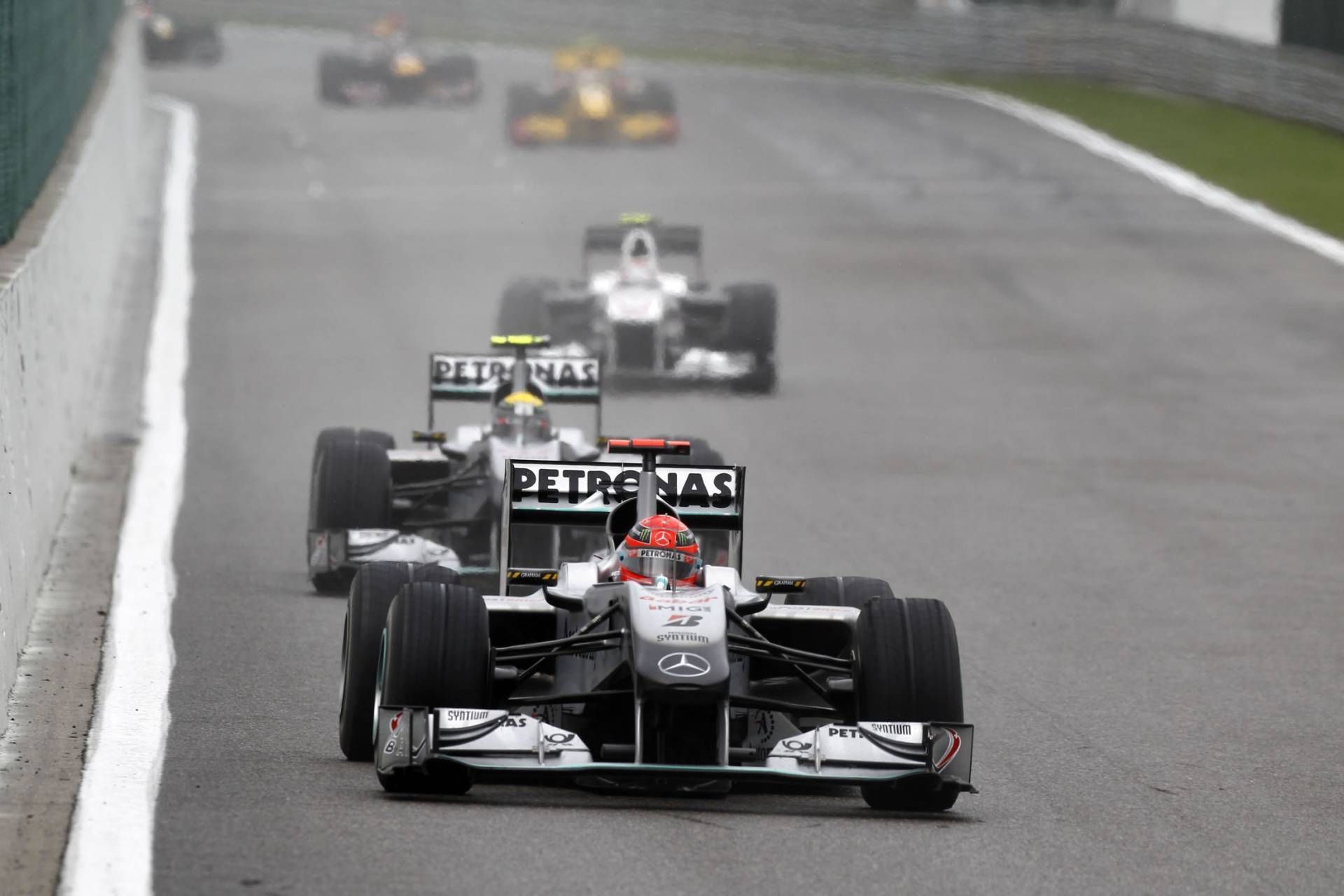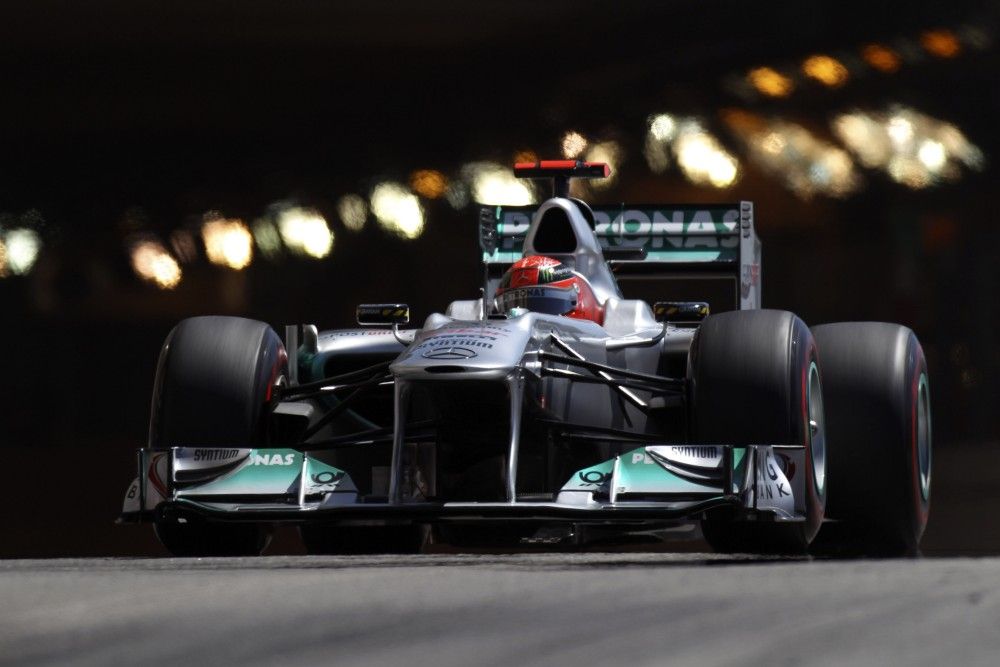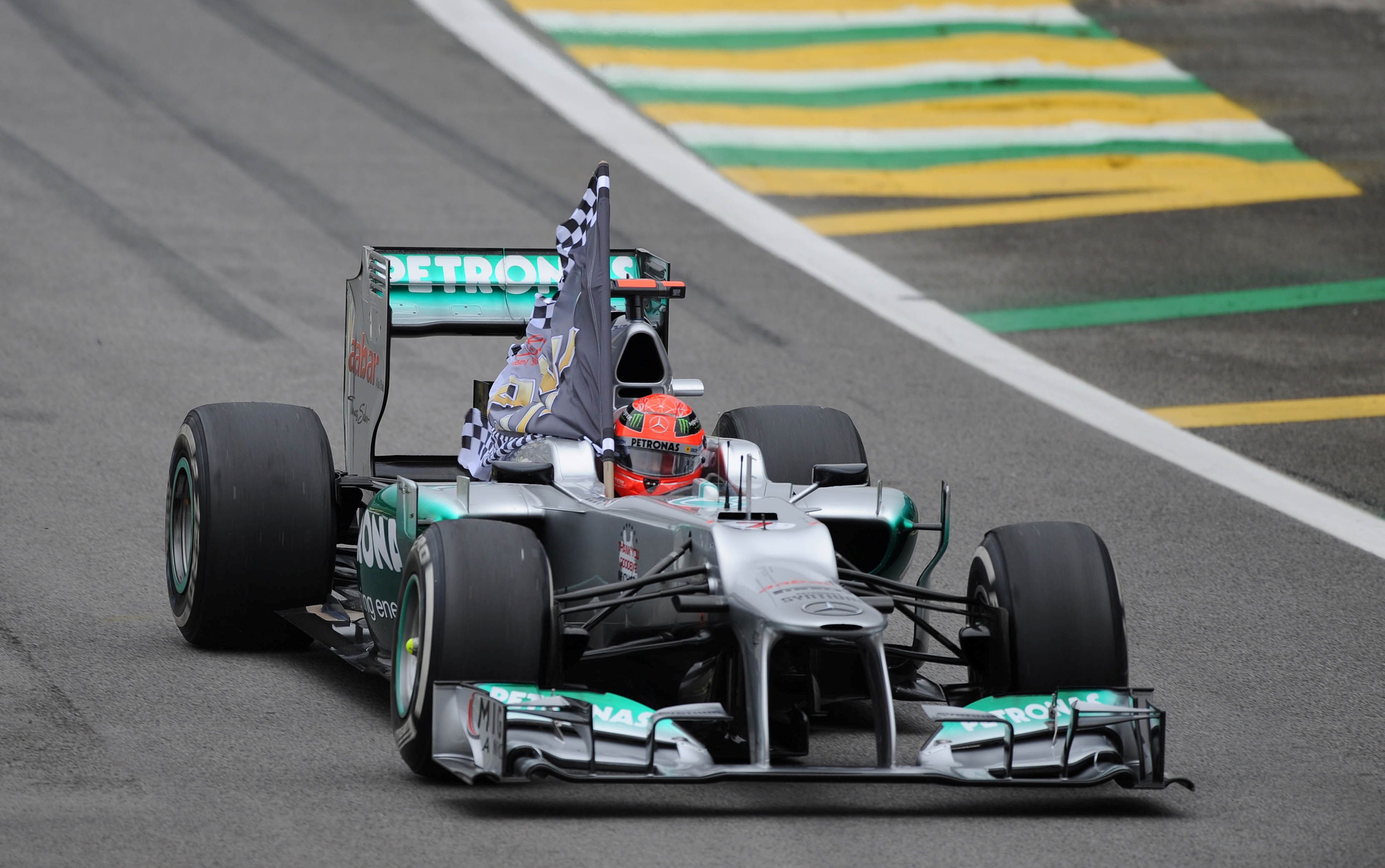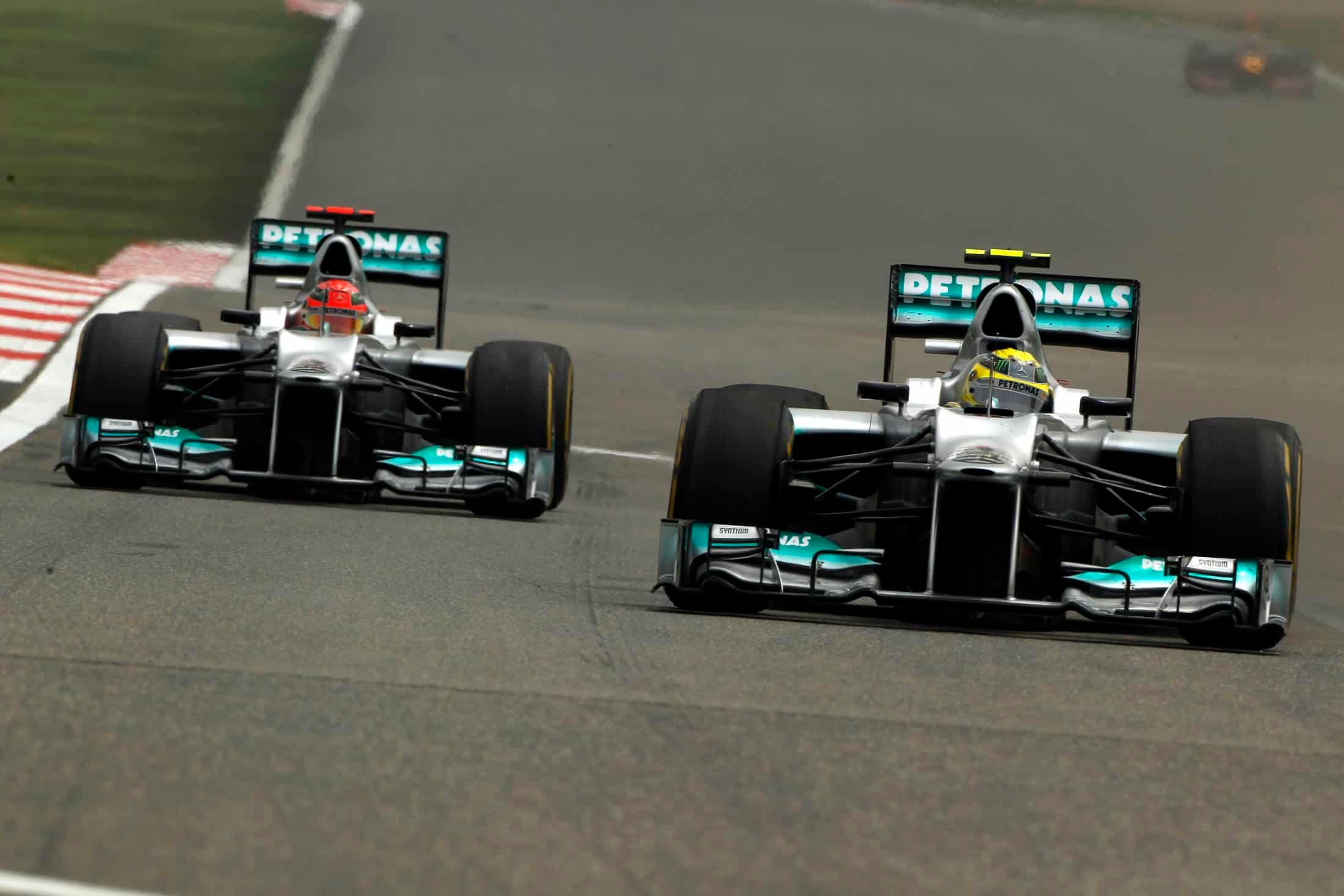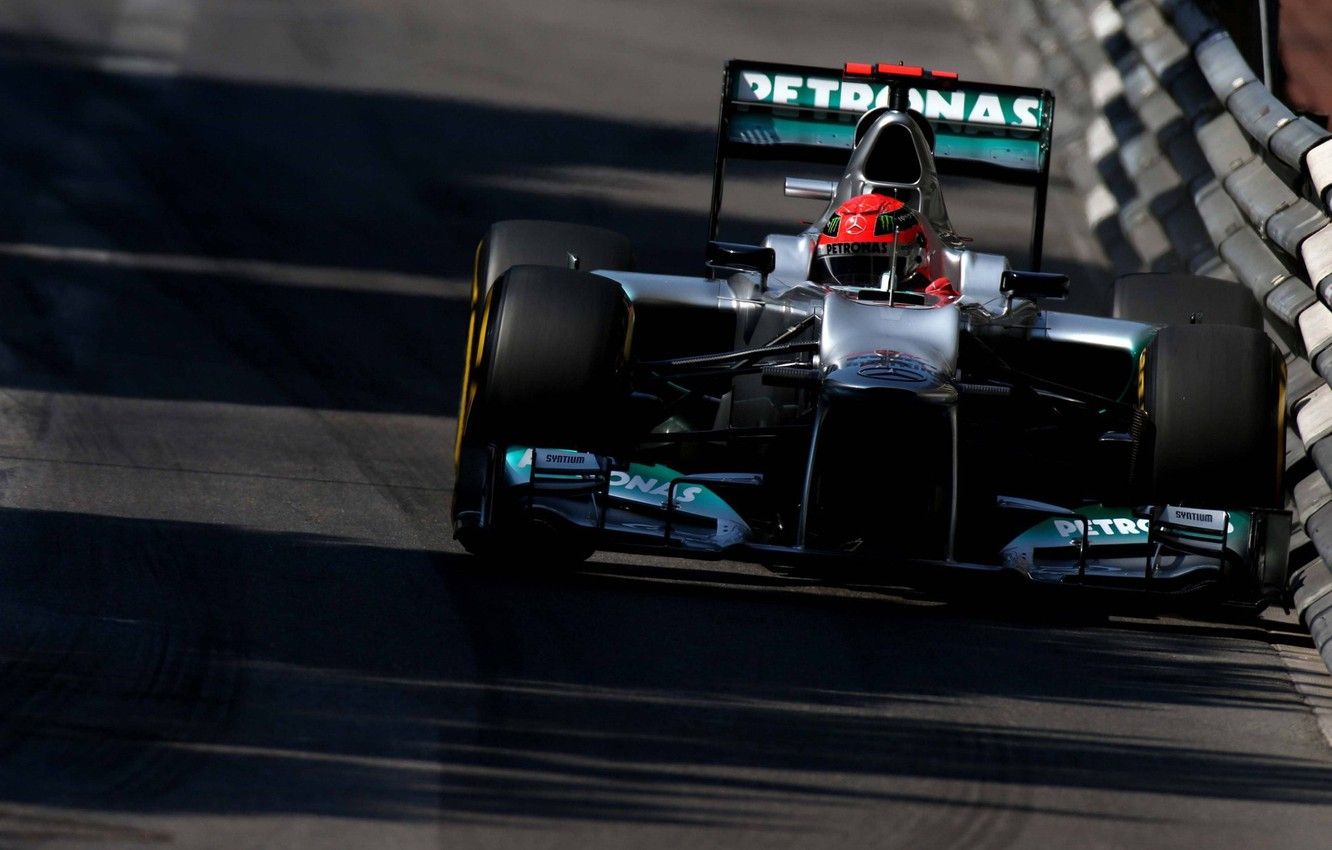Michael Schumacher is surely one of the greatest Formula 1 drivers of all time. The German won seven world titles, 91 races and took 68 pole positions in his career from 1991 to 2012. He raced for Jordan, Benetton, Ferrari, and Mercedes and became one of the all-time greats in the sport. His career has also recently been documented in the brilliant and emotional “Schumacher” documentary on Netflix, that charts his career from his first race with Jordan at Spa in 1991, right up until his first world title with Ferrari in 2000, as well as looking at his career up until the Mercedes days and charting some of his more controversial moments.
The years at Mercedes formed his comeback years in the sport, from 2010 to 2012. Schumacher retired from F1 in 2006 while driving with Ferrari, but then returned to the sport in 2010 with the Mercedes team that had taken over the championship-winning Brawn GP squad at the end of 2009. Big things were expected of the team and drivers, with Nico Rosberg signed up as Schumacher’s teammate. But despite the high expectations, things didn’t go well, and Schumacher failed to win another race in the three years he was at the Mercedes team.
A Difficult First Season
The Mercedes F1 team project was born out of the 2009 Brawn GP championship-winning team, which had seen the team win the constructors title and the drivers title with Jenson Button. Button moved to McLaren for 2010 as Schumacher replaced him, and Rosberg replaced teammate Rubens Barichello. The Mercedes team though was in for a tough year. The Mercedes W01 car was effectively a B-spec Brawn from 2009, and Button said that the car had really been designed for him before he left for McLaren. The car had inherent understeer, which didn’t suit Schumacher’s driving style.
Beyond that though, Mercedes had entered the sport in what looked to be a cost cap era and had budgeted accordingly. However, that cost cap never came. The team couldn’t develop its car much further than what they had at the start of the year, and it had suffered from redundancies made by Brawn early in 2009 in order to survive. Given how good Mercedes would become in later years, it was very much a case of “right place, wrong time” for Schumacher, who managed a season's best result of fourth in 2010 at the Spanish and Turkish Grand Prix, while Rosberg took a trio of podium finishes.
Poorly Developed Cars
The fundamental issue behind Schumacher’s tenure at Mercedes was the equipment he was given. While the 2010 car could be forgiven for being a mid-field runner, the next two seasons were almost worse due to their lack of performance. The 2011 car was a moderate step forward but Schumacher again failed to even make the podium, finishing a best of fourth in the Canadian Grand Prix, having run second for much of the latter stages of that race. The 2012 season saw Mercedes start off with a great car. Schumacher started on the front row in the Chinese Grand Prix and was fastest in qualifying for Monaco.
However, a loose wheel-nut at his first pitstop ruined Schumacher’s Chinese Grand Prix, as teammate Rosberg dominated. In Monaco, he had to take a five-place grid penalty for a collision in the previous race, and so started only sixth. The 2012 car soon started to fall back in the competitive order. It ate up the tires more than its rivals, and other teams like McLaren, Red Bull, and Ferrari started to out develop them. However, Schumacher did take a podium in the 2012 European Grand Prix, with what would turn out to be his last podium in Formula 1.
Stacking Up Against Rosberg
There was something positive to take from Schumacher’s comeback, however. As each season at Mercedes had gone on, Schumacher got closer and closer to Rosberg’s pace, and it became evident to more people that it seemed to be the car letting Schumacher down. Once Rosberg went up against Lewis Hamilton at Mercedes and showed up so well he beat him to the 2016 title, more and more people were waking up to the fact that Schumacher had been more on the money pace-wise in his comeback than many had given him credit for. It also showed just how good Rosberg was as well.
What Could Have Been
It's difficult to think about what might have happened had Schumacher not had his skiing accident in 2013 and had he stayed in Formula 1 beyond 2012. Because had he taken the same three-year deal that Lewis Hamilton signed, we could well be talking about a man with another one or two world titles to his name, given how dominant Mercedes were in those early days of the hybrid era. It was sadly a case of Schumacher being at the right time in the wrong time of its own comeback into Formula 1, but he laid the foundations for one of the sport's most dominant teams in its history.
Sources: Auto Evolution, Fan Pop, Speedsport Magazine, Reuters, Max F1, Goodfon, Planet F1

